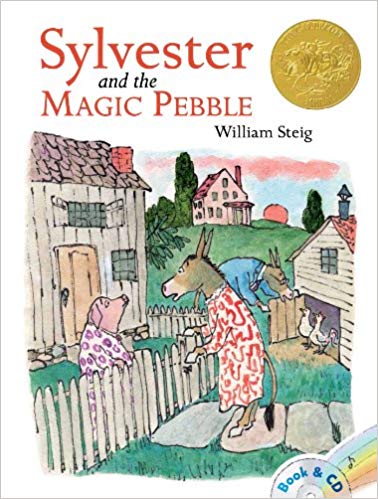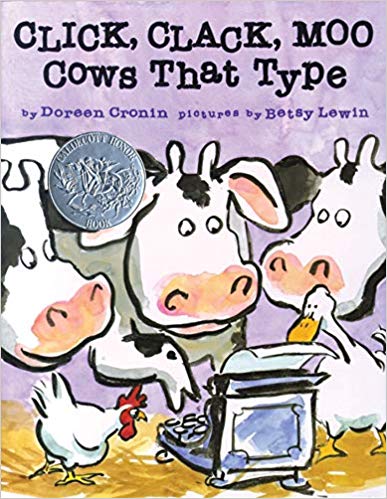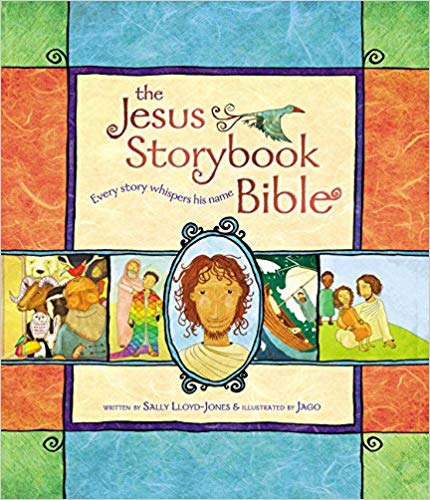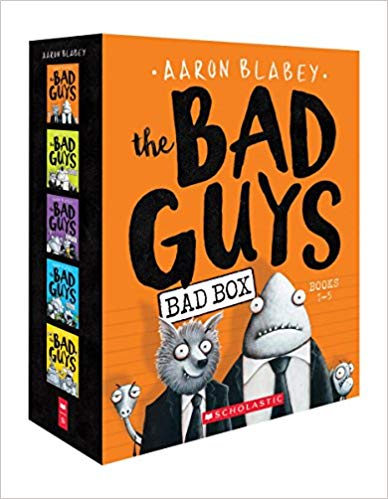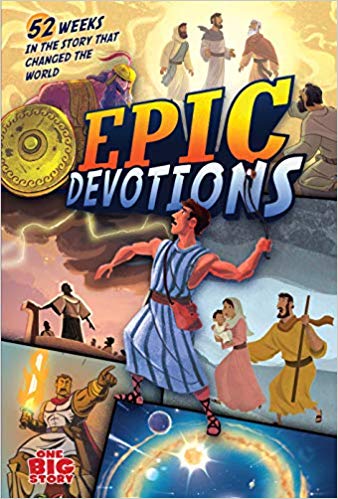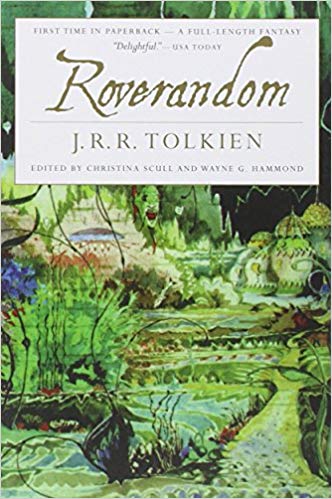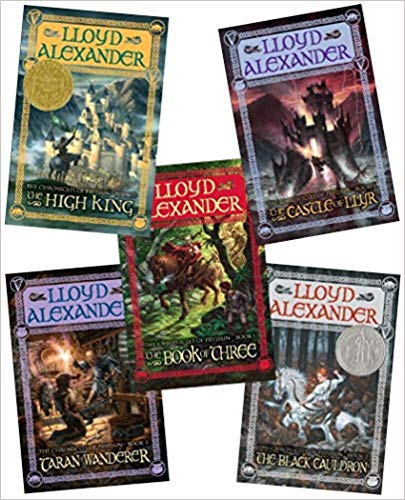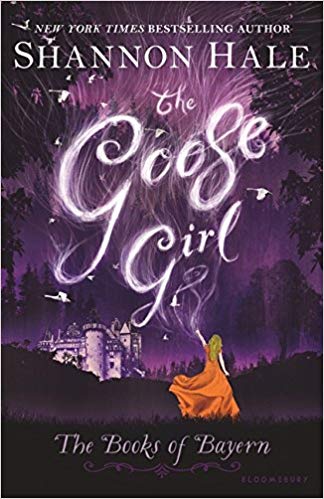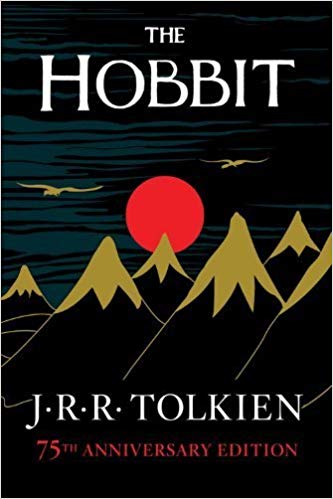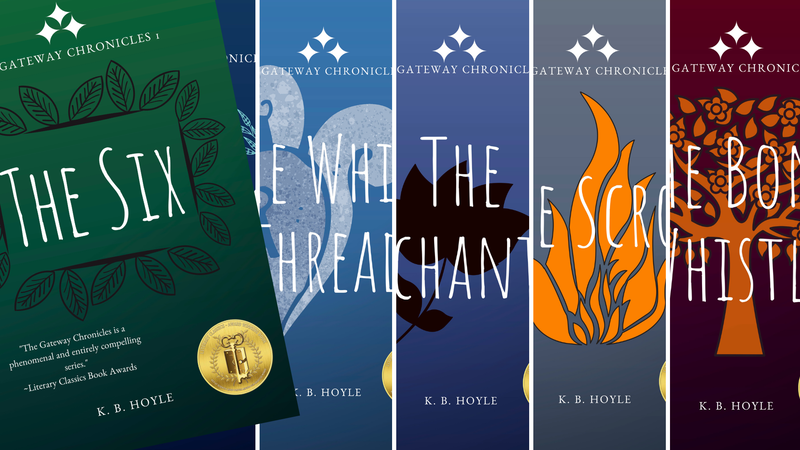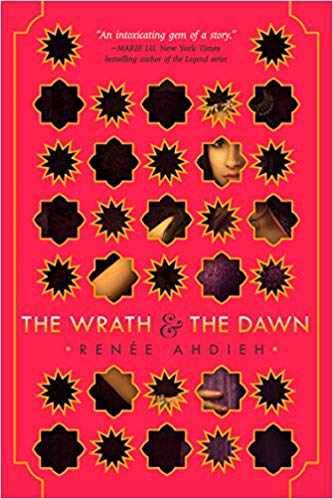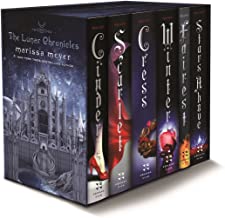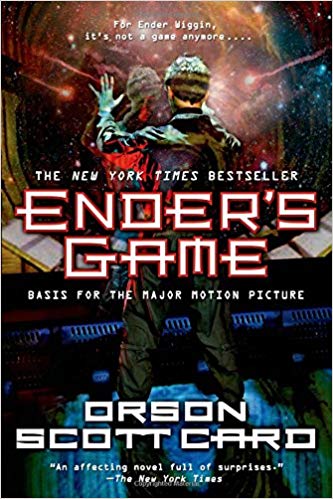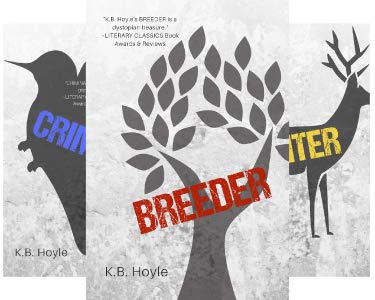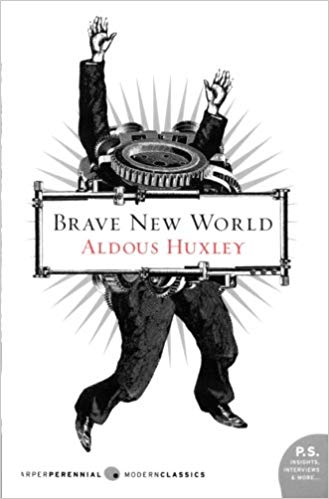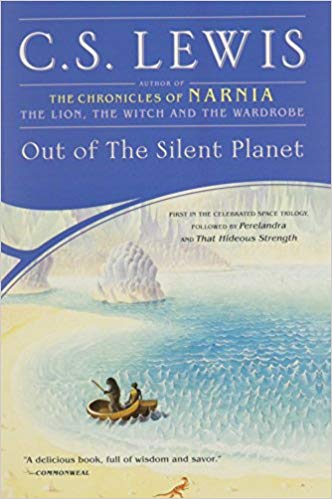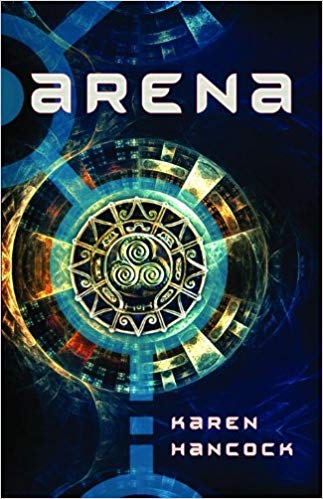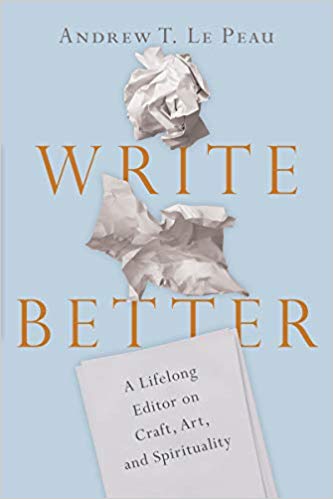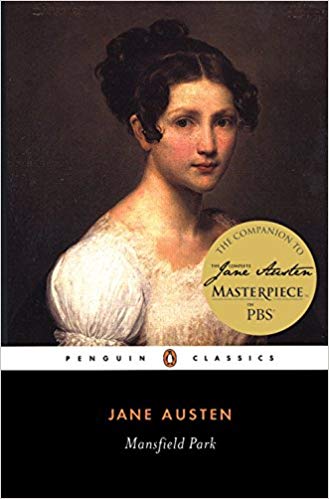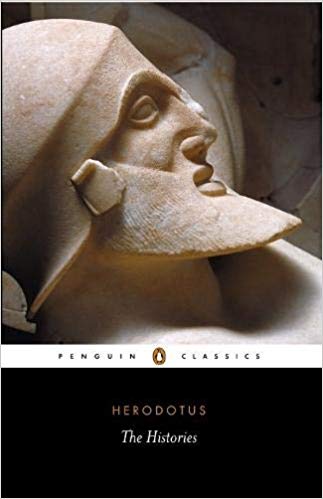|
12/5/2019 0 Comments Hoyle's Holiday Book Buying Guide!It's the time of year when everyone is looking for gift recommendations, and what better gift can you give than the gift of a good book (or two or four or ten)? As an author, I frequently get asked for my opinion on what books to buy people. Here are a few suggestions for readers across a variety of genres and interests--a smattering of new and old, classics and eclectic favorites. A little something, I think, for everyone... For Your Little Readers (Picture Books): SYLVESTER AND THE MAGIC PEBBLE Starting with a classic! This is a book I loved to read as a child. Light on magic and whimsy, and with just enough weird scariness to keep your child on the edge of their seat, SYLVESTER AND THE MAGIC PEBBLE by William Steig will not disappoint. CLICK, CLACK, MOO (COWS THAT TYPE) Absolutely all Doreen Cronin's books are delightful, but CLICK, CLACK, MOO (COWS THAT TYPE) is my favorite. The perfect balance of that style of humor that tickles adult and child fancy alike, this book is a national treasure. (Illustrated by Betsy Lewin) THE JESUS STORYBOOK BIBLE (non-fic, faith-based) If you're looking for a story-a-night type picture bible for your picture book age readers, the options can seem overwhelming. I highly recommend Sally Lloyd-Jones' JESUS STORYBOOK BIBLE, which presents each biblical account as a chapter in a connected narrative that leads to Christ. (Illustrated bu Jago) For Your Young Readers: THE BAD GUYS series I will admit up front that I have not personally read this series, but THE BAD GUYS series of books, by Aaron Blabey, is one I have to recommend for young readers (or middle grade readers who struggle with reading) because my reluctant reader LOVES this series, begs for each new book, and reads them cover-to-cover as soon as he has one in hand. He doesn't do that with any other book, period. EPIC DEVOTIONS (non-fic, faith-based) It can be difficult to find a devotional book for that transition age between picture bibles and when kids and teens feel comfortable reading the bible on their own. That's where EPIC DEVOTIONS comes in. With clear biblical content tying each story in a narrative arc that leads to Christ, and a graphic novel structure that makes reading it fun and engaging for young readers, Aaron Armstrong's EPIC DEVOTIONS is the perfect book to give a child who wants to start the spiritual discipline of a self-driven devotional time. (Illustrated by Heath McPherson) ROVERANDOM I love finding lesser-known titles by well-known authors, and that is what ROVERANDOM by J. R. R. Tolkien is. Published posthumously, this is the tale of a toy dog that finds its way to the moon and back. First invented by Tolkien to console his son, Michael, over a favorite lost dog toy that got left on a beach vacation, it is full of whimsy and puns and fancy and Tolkien's characteristic wit. Adults and older children can easily read this short story in a single sitting, or it makes for a wonderful family read-aloud. I hightly recommend! For Your Middle Grade and Tween Readers: THE CHRONICLES OF PRYDAIN I am forever recommending this series. Although Lloyd Alexander's THE CHRONICLES OF PRYDAIN have been around for decades, have sold millions of copies, and have won prestigious awards, it seems as though the tale of Taran the Assistant Pig-Keeper is one that causes perennial confusion when I bring it up. So here I am, recommending it again. This series is pure delight, with some of the most truly delightful characters I have ever encountered in any fiction, ever. The fourth book, TARAN WANDERER, is one of the most profound books I have ever read. Buy this series for your middle-grade reader, and then read it yourself. THE BOOKS OF BAYERN These books, by Shannon Hale, were such an enjoyable discovery. A mix of traditional fairy tale retellings and original stories--all sharing the same story universe--THE BOOKS OF BAYERN contain and elevate the sort of virtues and virtuous characters any parent would be happy to have their tween child reading. Slow and thoughtful stories, they are a pleasant corrective to our fast-paced world. (Series starts with THE GOOSE GIRL, but they can be read in any order.) THE HOBBIT I know this feels like an obvious recommendation, but I keep running into people who haven't read THE HOBBIT by J. R. R. Tolkien! The perfect time to introduce your child to this most excellent work is during the middle grade/tween years. Hobbits, dwarves, dragons, wizards... Need I say more? This is a classic tale everyone should at least be given the opportunity to read. THE GATEWAY CHRONICLES Of course I'm going to recommend my own books! It's my blog, after all. :) THE GATEWAY CHRONICLES start with a cast of characters who are age thirteen and struggling with all the difficulties that particular age brings as they go to summer camp--and then stumble through a magical gateway to another world. Even though the characters age up with each book, the stories stay focused on a younger audience. Most YA books are aimed these days at the 17+ audience, so finding age-appropriate tales for your middle grade and tween readers can be tough. My books fall into that gap! For Your Young Adult and New Adult Readers: THE WRATH AND THE DAWN duology Being a retelling of "1001 Nights" and with main characters who are 16 and 18, THE WRATH AND THE DAWN falls solidly within the YA audience readership. If you are unfamiliar with the basic premise of "1001 Nights," it is the story of a murderous caliph who marries a new bride every night, just to have her executed at dawn--and the woman who volunteers to wed him and saves her life by telling him stories that stay her execution. Renee Ahdieh's retelling uses the framework of the original tale and reworks it to tell a story of love, personal responsibility, and of the futility of vengeance. I find very few YA books truly excellent these days, but this one I've read and re-read. (THE WRATH AND THE DAWN is part 1 of 2. THE ROSE AND THE DAGGER finishes the story.) THE LUNAR CHRONICLES I love a good fairytale retelling, and Melissa Meyer's THE LUNAR CHRONICLES is just that, with the fun twist that it is a futuristic, science fiction story that is quirky and a little weird... and it somehow still works. Each book in this series focuses on a different character from known fairytale lore, so there is someone for everyone to relate to. My personal favorite is CRESS, but I enjoyed all of the installments. These are great reads for the YA readers in your life. ENDER'S GAME The fate of humanity rests in the gaming abilities of a boy named Ender in this classic science fiction/dystopian novel by Orson Scott Card. ENDER'S GAME is one of my absolute favorites, and could also be read by an advanced middle grade reader (when I gave it to my eleven-year-old, he finished it in a day). Having one of the best surprise finales I've ever read, it presents for contemplation all the great questions about life that a good dystopian novel should. THE BREEDER CYCLE I'm back to my own books! (Can you blame me?) My own dystopian series, THE BREEDER CYCLE, is intended for a YA and NA (new adult) audience. It is thematically similar to books like THE GIVER and BRAVE NEW WORLD that examine the ethics of humanity and life in a distant future where human procreation is strictly controlled by a totalitarian regime. The trilogy that begins with BREEDER stands alone as a contained story, and HUNTER is an added story that can be read at any stage. For Your Adult Readers:
BRAVE NEW WORLD I'm starting with a classic! BRAVE NEW WORLD by Aldous Huxley can be a polarizing read. Some people love it; others find it perplexing and depressing. I fall into the loving it camp, and I furthermore think it is some of the most beautiful prose writing I have ever encountered. Love it or hate it, BRAVE NEW WORLD is a cornerstone classic of the modern age and a must-read for any reader in your family who enjoys classics, science fiction, dystopian, philosophy, theology, politics, ethics, sociology... Buy it, read it, gift it, discuss it! THE SPACE TRILOGY C. S. Lewis is unarguably one of the most well-known and widely read authors of the modern age, so it is always a surprise to me when I encounter so many people who are unaware that he wrote a science fiction trilogy. THE SPACE TRILOGY (or THE RANSOM TRILOGY) is a brilliant collection of stories about a man named Ransom, his travels to known planets, and his encounters with various angelic beings and malicious forces. These books combine Lewis's profound wordsmithing abilities with his unique talent for telling a speculative tale that is crafted with such care it feels as though it could be real. ARENA Karen Hancock's ARENA is one of those rare books that manages to toe the line between allegory and speculative fiction without being too heavy handed. It is an extremely difficult thing to write a book that somehow feels part PILGRIM'S PROGRESS and part The Matrix, but Hancock manages just that in ARENA, and it's a favorite of mine I've returned to again and again over the years since it's initial release. A rare Christian fiction gem, for me, Hancock's work has always been worth returning for. WRITE BETTER (non-fic, faith-based) I do not read hardly any nonfiction, so when I do, it is saying something if it ends up being a book I could not put down. That was just the case with Andrew Le Peau's WRITE BETTER. Addressing the writer as a whole person, WRITE BETTER works in both form and function as Le Peau ably and whimsically instructs in the art of writing--and discusses the writer as a participant in the cultural mandate. Even if you are not a writer, but just someone interested in the arts, this makes for a fantastic read. (Winner of Christianity Today's 2019 Book of the Year in Arts & Culture, for which I acted as one of the reviewers.) MANSFIELD PARK I love all books by Jane Austen, and some I find more enjoyable than others, but in my opinion the best of all her works is one of the least often read. MANSFIELD PARK tends to be under-appreciated, but it is the most mature, theological, and profound of all Austen's excellent books. There is a story within a story happening between the pages of this book--the last one written by Austen before her death (although not the last published)--and it all doesn't fall together until the end. Gift it to your classics-loving reader this year! THE HISTORIES (non-fic) Once upon a time, I was a classical history teacher. During that time, I read through and taught THE HISTORIES by Herodotus yearly. Considering I did this with a group of eighth graders, I feel confident recommending this work in my Adult Readers section. If you have a reader on your list who loves history, mythology, and classics, and they have yet to read Herodotus, then this is an absolute must-read addition to their library! Filled with well-known stories about characters like the Oracle at Delphi, Cyrus the Great, and Xerxes, and a delightful mix of unreliable historical fantasy and reality, THE HISTORIES is not only the most well-known account of The Persian Wars (and everything that led up to it), but also a genuinely fun and exciting read. The Penguin Classics edition is very readable and the version I highly recommend.
0 Comments
6/2/2018 4 Comments Gateway Chronicles Edits...
As many of you reading this may know from reading my newsletter, I've been preparing my backlisted books for re-release this summer, 2018. This project is HUGE, as my backlist comprises of 8 titles across two series, and since I have the opportunity to re-release them on my own terms, I'm taking full advantage of this opportunity to edit, update, revise, and basically bring my old titles up to my new standards. I've been writing professionally for many years now, and I've learned a lot, so (as you can imagine), looking back on my earliest books has always left me with a desire to apply what I've learned to the stories I still love in order to make them better. What I'm able to do now with these books, and most particularly with The Gateway Chronicles, is, therefore, really a gift.
I do want to assure any of you who are fans of The Gateway Chronicles and are reading this post with any worry or dismay: I am not changing anything that is fundamental to the story. My edits, revisions, and updates have more to do with cleaning up the manuscripts than anything else, so here follows a basic rundown of what I have been doing on books 1-2 (and will continue doing to books 3-6) for the past 8 weeks. #1 - Fixing sloppy writing, such as creative dialogue tags When I first started out, I didn't realize how lazy and amateur certain writing habits, like the wide use of creative dialogue tags, are. In my edits, therefore, I am deleting most of them and/or replacing them with "said" or some sort of "showing" action. I'm also cutting many ly-adverbs, fixing "telling" scenes, cutting usages of "that" and "just," fixing any voice inconsistencies I find, etc. Minor "house cleaning" details like that. #2 - Cutting redundancies Redundant writing is also a plague of the inexperienced writer, and I've found a lot of it in my earliest manuscripts. Expressions such as "She nodded her head," or "He shrugged his shoulders," or "She covered her face with her hands," or "He sat down." All of these are needlessly wordy because the added clarifiers are redundant. How else can one nod but with your head? Shrug, but with your shoulders? I suppose you can cover your face in your arms, but if that really needs to be said, then you can clarify that. When you sit, you sit down. So: "She nodded." "He shrugged." "She covered her face." "He sat." If you can say what you need to say in fewer words, it's almost always best to do so. Redundancies also show up in dialogue, especially when dialogue is paired with action. I find that I, personally, tend to be redundant when I'm having characters explain things because I'm an over-explainer. It probably comes from being a teacher. #3 - Simplified and clarified passages of explanation, while cutting needless exposition Speaking of being an over-explainer, I have some passages in both The Six and The Oracle that go overboard in the explanation department, and probably, I think, to the detriment of actually understanding what it is I'm trying to have the characters explain. In my read-throughs, I noticed how often, and in how many ways (for example) I tried to explain the time travel, or how two narks inhabit one body. These things are actually not that complicated, so I cut some of the explanation and simplified how I have the characters talk about them. I also cut back a bit of the history section in The Six. #4 - Cutting down on self-indulgent writing Because "Cedar Cove" is based on a real place, and Darcy's experiences at the camp and her interactions with her friends are heavily influenced by my own friendships and interactions at the real camp, I tended to slide into self-indulgent storytelling when I wrote The Gateway Chronicles. This works in the places where it lends that inner consistency of reality that the reader craves from any story, but where I wax on with descriptions of rocks and trees and paths and the lodge and the campgrounds and, and, and... It gets to be a bit much. The story shouldn't read like a personal camp memoir, so anything that doesn't actively build setting, develop characters, or move the plot forward got cut in these edits. (*I received some very impassioned pleas via e-mail from some of my lovely newsletter subscribers asking me NOT to cut too much from my camp descriptions, as this is part of the appeal of the series, and I want to assure everyone that I really, truly, have only cut those portions that went above and beyond. If it was EXTRA, it went. I don't think even my most avid readers will even notice what is missing here, unless they do a page-by-page comparison of the old and new manuscripts!) #5 - Smoothing time transitions This was something that was passed on to me as feedback from some newsletter subscribers, and it really only has applied so far to my edits on The Six. Some of the time jumps in the book are a little jarring, most particularly the one near the end (which I don't want to spoil). In response to the feedback, I took some care in going back over my transitions and attempting, at least, to smooth them over. I can't/couldn't add more scenes to expand the timeline of the story so there aren't those time jumps (I really can't have the books turn into 500-page tomes!), but I hope the small additions and changes I've made will have everything read a little smoother. #6 - Expanded a few scenes to enrich relationships Hopefully this editing note will be exciting for everyone! No, I didn't just make cuts in these edits, and YES, there will be new material to read! In particular, I've expanded a few scenes here and there in order to enrich relationships. The ones I've focused on are Tellius and Darcy, and Darcy and Yahto Veli (but I've made a few other tweaks here and there). I haven't added whole scenes (again, length restrictions), but I have added dialogue and some exposition. Tellius, in particular, doesn't get a lot of time and space in books 1 and 2, but after I got into the second half of the series, back when I was first writing it, and I saw how his character had developed, I always wished I had given him a little more in the first books. So now I have! Not massive additions, but hopefully enough to be excited about. #7 - Brought the story into 2018 Since I'm rebooting and re-releasing, I thought, "Why not reboot this as a 2018 story?" I'm hoping many new readers will pick it up for the first time, and I thought they might be confused if, for example, the teens in the story didn't have smartphones. A few vernacular, thought, and fashion tweaks here and there in addition to things like giving them smartphones. Updating the dates for when Eleanor Stevenson went missing from Cedar Cove. These are small, but important details. SO, again, these are the basic things I've been working on, and (honestly), I'm a little exhausted just reading back through all this! Phew. The Six has been the hardest, as it was my first book and needed the most work (and I'm very thankful for the volunteer efforts of a couple friends who have lent their eyes and expertise to it in the past month and a half, too!). The Oracle has been easier, and as I'm just starting my edit on The White Thread, I'm finding I really did improve incrementally with every book I wrote and every year I worked with my excellent editorial team. I'm confident I can get these books all finished to my standards and re-released this summer, and I hope you consider purchasing a new set and sharing them with your friends! Please let me know if you have any questions at all about what I am doing or have done with The Gateway Chronicles, or the editing process in general. And if you really want to keep up with my re-release news as it's happening, be sure to subscribe. Thanks for reading! 5/4/2018 0 Comments How to be a Successful Writer
I recently finished the rough draft of my 11th novel. Using outlining techniques I've been honing for years, it took me between 11 and 12 weeks to plan and execute this draft from beginning to end, including about 90% of the world-building.
When I get going on a book, I write with a sort of feverish energy, totally immersing myself in the project, and I will admit that many things in my life go undone as a result -- usually things like cleaning and general picking up around my house. But my four children still have to be cared for, and I still need to spend time with my husband, and my other work (freelance and contract writing and editing) needs to get done, so I can't disappear entirely into my head. But my stories do weigh heavily on me until they are finished, which is part of why I insist on pouring them out at a frenetic pace until they are done. I'm always asked how I do it. Obviously writing a novel is not a speed drill or a race with anyone else, so the pace at which I do it is really not that important, but to me, getting them out of my head in a timely manner IS important for the reasons I've mentioned, as well as a few others. And these other reasons are things I think make for a successful writer. *Please keep in mind, I'm not claiming these are the only things that make a writer successful, just that they are some key elements I think do make for writing success. How each writer applies them might look different depending on circumstances. Self-Motivated I don't know if this is widely put about, but writing doesn't pay well. Or sometimes. . . at all. Or maybe better said, under certain circumstances, writing doesn't pay yet. Everything depends on where you are in your writing "journey" -- your career path, assuming you are choosing writing as a career. If you are really crazy and have chosen to be a novelist (ha), you had better prepare yourself to fall into the category of delayed monetary gratification, if it ever comes at all. So as a writer, you need to be self-motivated to get your manuscripts written in your own time while working other jobs for actual money (or falling back on a spouse or significant other or parents to support you). I have met a lot of hobby writers and wannabe successful writers. You'd be surprised how many of them lack basic self-motivation. I know it seems like I'm making this all about money here, and maybe that's a mistake, but money is a reality of this game. Money aside, though, sometimes writers can just be terrible procrastinators. Not only do you have to be prepared to work for little to no income, but you have to motivate yourself to work even when you don't feel like it. Goal-oriented Successful writers are goal oriented people. I'm not talking about hobby writers. Hobby writers often pick at their manuscripts for years -- never really serious about them. They wax philosophical about being "writers," but many of them have never really finished anything or submitted anything for publication or been paid for anything (no matter how much or little). Many hobby writers could be professional writers if they wanted to be, but they lack clear goals -- clear focus about what they want to be doing, and/or where they want to be with their writing career a year from now. Two years from now. Five years. . . Ten years (you get the idea). Most simply put: If you don't know where you're going, you can't possibly know how to get there. If you don't view writing as a career and set clear goals for yourself, you will never put yourself on a path to meet those goals. Now, sometimes you won't meet your goals, because a lot in the writing industry simply doesn't depend on you and the power of your will. (If I could will myself to right now be a New York Times bestselling author, believe me, I would!) But, as with any goal setting, if you start with attainable goals and work your way forward, you will actually make progress toward the bigger goals you have. For example: Do you want to be a published novelist? If the answer is yes, but you have never actually completed a manuscript before, then the first goal you should set for yourself is finishing writing a book! Then you need to ask yourself: How do I finish writing a book? Then set steps for yourself to make sure you 1) Learn how to do it, and 2) Do it in a set timeframe (SO important). Also so important with your goals, though, is giving yourself grace when things don't turn out the way you intend. You will stumble and fail many times over if you decide to seriously pursue writing. Sometimes it will be your fault, but if you are doing all you can to complete reasonable goals, more often than not, it will just be the hard knocks of the industry. It's a business of rejection -- plain and simple. Learning to pick yourself up, dust yourself off, reorient, and keep going. . . These are crucial things. (And if you've set your goals several years out, you should be able to keep those before you as a fixed point to help you get back on your feet whenever you stumble.) Finishers Hobby writers tend to be terrible finishers. Professional writers -- successful writers -- finish things. I don't just mean finish manuscripts, by the way, I mean finish goals. I've known some fantastic hobby writers who have completed several books, articles, poems (you name it), but who have never gotten up the moxie to submit anything for publication or set any further goals besides tossing words on the page. If you want to be a successful writer, you have to finish -- not only books, articles, short stories, poems, essays (ad infinitum) in a timely manner (often to deadlines!), but finish those goals you set out for yourself. And it doesn't necessarily mean cranking out a novel in 12 weeks, but it does mean not letting procrastination take hold. It means treating writing like a job (because. . . it is). It means writing -- something -- every day you possibly can. It means acknowledging that if other professions don't get to use being "blocked" as an excuse to not finish a project, then neither do you! At the end of the day, you can't ever be labeled "successful," and you're not going to make a dime on your writing, if you don't finish. And you can't finish if you don't know how (aren't goal-oriented). And you probably aren't going to set those goals in the first place if you aren't self-motivated to do so. So those are my Big Three when it comes to being a successful writer. Thoughts? Questions? I'd love to hear from you in the comments below! |
Archives from my old blog...
|
Proudly powered by Weebly

